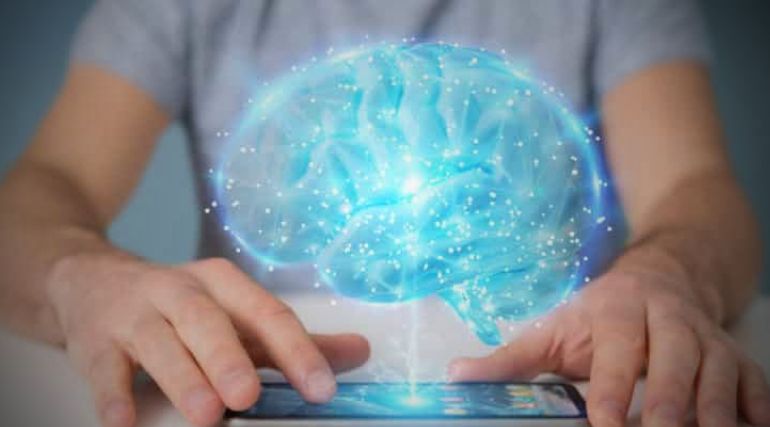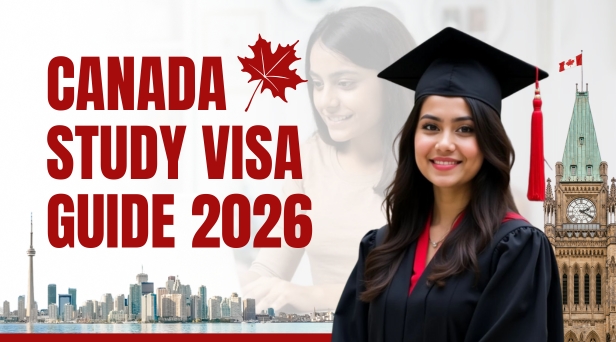While the majority of mental health professionals generally wouldn't urge individuals to spend more time on their cell phones, some applications may make screen time into time well spent. For those trying to better their life, these applications provide tools. Others are grounded in positive psychology and seek to promote attention, happiness, and calmness via mindfulness and meditation. Some are intended to assist persons dealing with conditions like depression, anxiety, or PTSD.
Even when there isn't a worldwide epidemic, it might be good to have a range of self-care resources on hand. However, these days, it may be even more crucial to expanding your mental health arsenal, especially if you currently lack connection, routine, or in-person mental health assistance.
There is a tonne of really beneficial mental health applications available to fit a range of issues, conditions, objectives, and more, while they should not be used as a substitute for professional care. Find a selection of recommendations for yourself, reader favorites, and applications that have been endorsed by mental health professionals below.
Apps for Stress
Calm
Calm, which won the Apple Best of 2018 award, offers a wide range of resources, including guided stretching videos, sleep tales (imagine calming bedtime stories for adults), and meditation series that target certain life issues, such as anxiety, attention, self-esteem, and self-care. There are meditations and bedtime stories available for both children and college students. You may keep track of the days and minutes you spend meditating by using the new "Daily Calm" meditation with a different subject every day.
Stop, Breathe, Think
People from the NGO Tools For Peace, which teaches teenagers mindfulness and meditation and gives them the tools to become more compassionate, produced this app. It is ideal for when you're overcome by strong emotions like worry, tension, sadness, or rage. It was created for adults, teenagers, and kids. You may use the app to help you pause, relax your body and mind through breathing, observe your thoughts, and then partake in a little meditation when you detect strong emotions about to surface.
PTSD Coach
PTSD Coach was developed by the National Center for PTSD at the Department of Veterans Affairs and the National Center for Telehealth and Technology at the Department of Defense to help those who have or may develop post-traumatic stress disorder. It provides resources on how to seek out and receive professional assistance, a self-assessment to help evaluate whether you could be experiencing symptoms of PTSD, and methods to help handle the demands of daily life. Along with encouraging self-talk, there are hobbies and relaxation techniques that assist in managing anger.
Apps for Meditation
Headspace
The excellent and user-friendly Headspace software is perfect for both new and experienced meditators who wish to develop their practice. There are numerous meditation programs available that deal with issues including anxiety, stress, sleep, and physical activity.
A variety of features are available, such as "sleepcasts," which are special, calming audio experiences to help you fall asleep, 2- to 3-minute mini-meditations to help you quickly achieve a mental shift, "SOS" meditations made to support you during times of extreme stress or emotion, and instructive motion graphics to clearly explain and showcase mindfulness and meditation concepts.
Smiling Mind
Two Australian advocates for mindfulness and meditation created Smiling Mind. They set out to make mindfulness and meditation available to everyone, regardless of location or financial situation. It just takes ten minutes a day. Although this program includes adult-guided meditations, it is primarily designed for kids to enhance their mental health and academic achievement. The app has effectively touched 4.1 million adolescents since 2012.
Insight Timer
Insight Timer is a free meditation tool that is used by more than six million people. With renowned teachers like Tara Brach, Jack Kornfield, Thich Nhat Hanh, and Kristin Neff, it offers courses on how to meditate, a meditation timer that is a fan favorite (for those who prefer unguided meditations), and a huge free library of more than 35,000 guided meditations, including ones for sleep.
Charts will be used to track your advancement and streaks. This app is excellent for folks who are still discovering what kinds of meditations they enjoy and the kinds of voices and guides that are most helpful to them since what style of meditation works best for you is quite individualized.
Apps for Depression
Sanvello
This software is made to assist those struggling with depression, anxiety, and stress and is based on mindfulness meditation and cognitive behavioral therapy. Sanvello, formerly known as Pacifica, assists users in recognizing thought and behavior patterns that result in unfavorable emotions. It then supports you in re-framing those ideas and altering your actions to help you live a life that is more in line with your goals.
You may use the app to track your emotions, practice meditation, and breathing techniques, create short-term and long-term objectives, interact with the Sanvello peer support group, learn about various self-help techniques, and monitor your progress.
MoodTools
To evaluate whether you have depression and to monitor the intensity of your symptoms over time, MoodTools offers the Patient Health Questionnaire (PHQ-9) for your use. It provides you with ways to improve your mood, instructional videos (such as TED Talks and meditations), a platform to journal and keep records of your attitudes and feelings, and a tool that aids in creating a health and safety plan for emergency situations.
SuperBetter
SuperBetter is a game that focuses on improving resilience and the capacity to remain strong, positive, and driven in the face of adversity. This software is compatible with iOS and Android smartphones. People can set condition-specific targets such as acquiring coping mechanisms for anxiety, despair, or chronic pain.
According to the business, this software is also appropriate for teachers who want to develop resilience, mental health, and social-emotional learning in their pupils. The software gives users a list of tasks to complete, such as drinking water, going for a walk, and embracing themselves. When a person completes a goal, they are rewarded with power-ups that they may access at any moment.
What’s Up?
This software was developed to assist those suffering from depression and is based on cognitive-behavioral therapy concepts. It can also help persons suffering from worry, tension, rage, and other concerns by identifying thought patterns that contribute to bad feelings and providing other ways of thinking during difficult situations.
It includes soothing breathing methods, a notebook to record thoughts and feelings, guided activities to help you feel grounded, and other inspirational items.
Apps for Productivity
Fabulous
This software named one of the top self-care applications by Apple in 2018 educates, encourages, and inspires you to achieve your objectives while recording your progress. This software teaches you how to form healthy behaviors in 30 days using studies on how to break bad habits and establish good ones.
This software is ready to help you abandon what's not serving you and accomplish more of what is, from battling to get out of bed in the morning to managing stress, focusing, and developing productive habits.
HabitBull
Whether you're attempting to overcome a coffee habit or build new, healthy habits like exercising or meditating, HabitBull will keep you on track. It will be simpler to address the patterns in your life if you can see them clearly. This software holds you responsible for your objectives while pushing you to achieve them, with motivational quotations, progress charts, reminder notifications, and easy-to-see streaks.
Apps for Anxiety
Breathe2Relax
Breathe2Relax teaches diaphragmatic breathing, a method that improves oxygen capacity and has been demonstrated to reduce heart rate, blood pressure, and stress. People who are feeling panic, anxiety, PTSD, or wrath might benefit from this style of breathing. The software includes movies, reading materials, and tools to measure users' progress.
Brain.FM
Brain.FM optimizes brain function by encouraging neurons to lock on to patterns to reach a desired state of mind, depending on the sort of mental state you want to attain. Whether you want to focus, fall asleep, meditate, or relax, the app's creators claim that you will see improvements within 15 minutes.
Panic Relief
Panic Relief was created by a Danish physician and cognitive therapy specialist to aid those who are experiencing extreme anxiety or panic attack. The software walks you through the symptoms associated with panic and assists you in remaining calm throughout an episode through brief animations.
The app provides a variety of materials to assist you to understand what is going on in your body during a panic attack, as well as activities such as breathing and relaxation exercises, as well as positive imagery, to help you soothe and calm yourself, and in some cases, fend off symptoms.
Apps for Mindfulness
Happier
In order to help you monitor and control your emotions throughout the day and maximize pleasure, joy, and tranquility, Happier was developed as a "personal mindfulness coach." It provides courses on happiness and well-being, meditation exercises, a place for you to record things for which you are thankful, and inspiring quotations. It also gives you the chance to connect with other users who share your interests.
10% Happier: Meditation
This app, which purports to be "for fidgety skeptics," was built by Dan Harris, a television journalist and author of the book 10% Happier. The app, which won an Apple Best Of 2018 award, tries to demystify meditation and provides easy tips to assist wannabe meditators in follow-through. There are how-to videos, guided sessions tailored toward subjects such as anxiety and political tension, advice on how to sustain a regular meditation practice, and advice on how to integrate the principles acquired in mindfulness throughout your day.
Buddhify
Buddhify's mission is to effortlessly integrate meditation into your life wherever you are—both physically and emotionally—instead than forcing you to carve out time for it over the course of your day. To help you choose the ideal meditation for the situation you're in, all of the available meditations—which range in length from four minutes to 30—are organized by category.
There are sessions that are perfect for going for a stroll or taking a break from work, some for when you could be experiencing extreme anxiety, and yet others for when you are attempting to go to sleep. You may email meditations to those you believe could benefit from them even if they don't have the app. There are also meditations that can be done with others, such as friends, family, or coworkers.
The Mindfulness App
The Mindfulness App seeks to provide accessibility to mindfulness for all people. Many of the advantages of mindfulness and meditation can only be attained with regular practice, yet many individuals find it difficult to remember or carve out the necessary time each day. 3 This app provides quiet timers for those who prefer silent meditation, gentle reminders throughout the day, and guided meditations for all levels of meditators.












